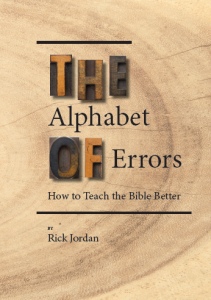Enter his gates with thanksgiving
and his courts with praise;
give thanks to him and praise his name. – Psalm 100:4
It seems strange that the psalmist “commands” us to praise – as if God is some egotistical celebrity needing a daily dose of standing ovations. If I am not freely worshipping (without being commanded to do so), is it truly worship? If someone demands a constant stream of compliments from us, how do we feel about them?
In Reflections on the Psalms, C.S. Lewis addresses this awkward imperative. This is a lengthy quotation, but well worth the time to read:
The world rings with praise
“When I first began to draw near to belief in God and even for some time after it had been given to me, I found a stumbling block in the demand so clamorously made by all religious people that we should ‘praise’ God; still more in the suggestion that God Himself demanded it. We all despise the man who demands continued assurance of his own virtue, intelligence or delightfulness; we despise still more the crowd of people round every dictator, every millionaire, every celebrity, who gratify that demand. Thus a picture, at once ludicrous and horrible, both of God and His worshippers, threatened to appear in my mind.

“The Psalms were especially troublesome in this way —’Praise the Lord,’ ‘O praise the Lord with me,’ ‘Praise Him.’… But the most obvious fact about praise — whether of God or anything — strangely escaped me. I thought of it in terms of compliment, approval, or the giving of honour. I had never noticed that all enjoyment spontaneously overflows into praise unless . . . shyness or the fear of boring others is deliberately brought in to check it.
Inner health made audible
“The world rings with praise — lovers praising their mistresses, readers their favourite poet, walkers praising the countryside, players praising their favourite game — praise of weather, wines, dishes, actors, motors, horses, colleges, countries, historical personages, children, flowers, mountains, rare stamps, rare beetles, even sometimes politicians or scholars. . . . Except where intolerably adverse circumstances interfere, praise almost seems to be inner health made audible. . . .

“I had not noticed either that just as men spontaneously praise whatever they value, so they spontaneously urge us to join them in praising it: ‘Isn’t she lovely? Wasn’t it glorious? Don’t you think that magnificent?’ The Psalmists in telling everyone to praise God are doing what all men do when they speak of what they care about. My whole, more general, difficulty about the praise of God depended on my absurdly denying to us, as regards the supremely Valuable, what we delight to do, what indeed we can’t help doing, about everything else we value…
Incomplete until expressed
“I think we delight to praise what we enjoy because the praise not merely expresses but completes the enjoyment; it is its appointed consummation. It is not out of compliment that lovers keep on telling one another how beautiful they are; the delight is incomplete till it is expressed. It is frustrating to have discovered a new author and not to be able to tell anyone how good he is; to come suddenly, at the turn of the road, upon some mountain valley of unexpected grandeur and then to have to keep silent because the people with you care for it no more than for a tin can in the ditch; to hear a good joke and find no one to share it with. . . .

“The Scotch catechism says that man’s chief end is ‘to glorify God and enjoy Him forever.’ But we shall then know that these are the same thing. Fully to enjoy is to glorify. In commanding us to glorify Him, God is inviting us to enjoy Him”1
- C.S. Lewis, Reflections on the Psalms (New York: Harcourt, Brace & World, Inc., 1958), 90-97. [↩]


“inner health made audible…” Fantastic insight. The mouth speaks what the heart is full of…
There is just far too much of His handiwork available to us NOT to praise Him. My favorite professor at LR, Dr. Mazak, once said, “It is suggested by most in the various fields of science that of all there is to know about everything in our world and universe, mankind has only discovered approximately 3 to 4 percent of all there is to know. I believe it is far less than that.” That means that mankind has literally only scratched the surface of discovering and learning about all that God has created. And, of the very limited knowledge we have obtained over the past 6,000 years, it is still incredible and overwhelming us. How can I not praise the Creator for all that He has done?